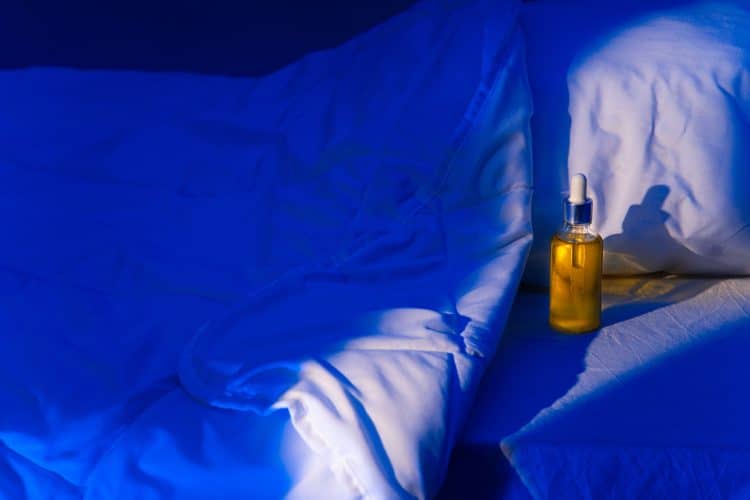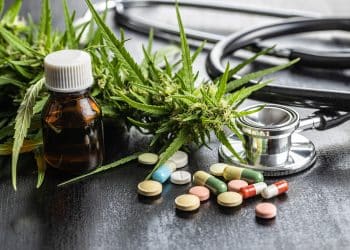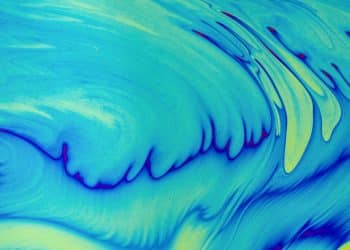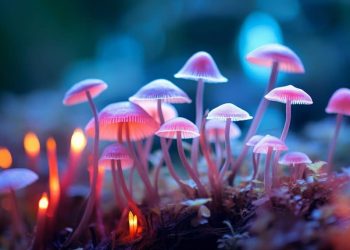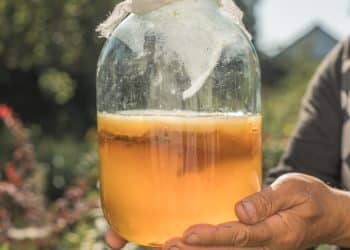Around the world, approximately 790 million people are affected by sleep disorders. This can generate health problems such as insomnia and chronic anxiety. [1] Conventional medicines and psychotherapy interventions are usually used to deal with this type of problem, but there are also many natural remedies, derived from plants, that can significantly help with the alleviation of these disorders. In this review, we will analyze the most recent studies regarding the use of medicinal herbs for the treatment of insomnia and all the resulting conditions, analyzing their effects and mechanisms of action.
The regularity of the sleep-wake cycle is a fundamental aspect of our mental and physical health. Sleeping a certain number of hours at night is as essential as eating, drinking, or breathing. Sleeping can be considered a reversible state conditioned by age and the environment around us, even if we do not interact with it. In addition to these two factors, there are many others to consider, including the numerous neurotransmitters responsible for sleep-wake control, including noradrenaline (NA), histamine, and gamma-aminobutyric acid (GABA).[1] These transmitters, together with the most famous serotonin and melatonin, play a very important role in the sleep regulation process.
Insomnia and Sleep Disorder
Sleep disorders are very widespread in the population, they can be milder or have a strong impact on the mental and physical health of those affected.
The International Classification of Sleep Disorders (ICSD) divides these disorders into 7 categories:
- Respiratory disorders;
- Hypersomnolence disorders;
- Disorders of the circadian sleep-wake rhythm (the circadian cycle refers to the biological clock with which the body beats all its functions during the 24 hours of the day, from the Latin “circa diem” which means “around the day”);
- Movements related to sleep;
- Parasomnias;
- Insomnia.
Insomnia refers to the difficulty of falling asleep and staying asleep during the night. Insomnia is chronic when it occurs at least three times a week for three months. This condition affects 5-10% of the population and causes a drastic change in the quality of life. While it is not chronic if it occurs for less than three months, this condition affects a larger percentage of people: around 30-50% of the general population.
Insomnia and General Anxiety Disorder (GAD)
What is the connection between insomnia and anxiety? General anxiety disorder (GAD) is a psychiatric condition that includes various imbalances. It presents as a chronic state of anxiety that can last up to six months and is often a consequence of other psychiatric disorders such as depression or post-traumatic stress.
People with GAD suffer from a disabling psychiatric condition that can include symptoms such as panic disorder, social phobia, specific phobias, insomnia, and major depressive disorder. [2] The pathophysiology of general anxiety disorder is closely linked to the values of gamma-aminobutyric acid (GABA), an inhibitory neurotransmitter responsible for neuronal excitatory regulation. GABA receptors are located in the prefrontal cortex, in areas involved in the response to fear and anxiety. Some studies suggest a bidirectional correlation between anxiety/depression and insomnia, with anxiety and depression related to future insomnia and insomnia related to future anxiety/depression.[3]
Treatment of Chronic Insomnia
There are various ways to treat chronic insomnia, which are basically divided into two categories: psychotherapeutic treatment and pharmacological treatment.
- With psychotherapeutic treatment, you undertake a path of cognitive-behavioral analysis with the help of a professional. This path of analysis can also include behavioral therapy, training in meditation, and relaxation response, all widely used techniques that have proven to be particularly effective and which are in fact constantly evolving.
- Pharmaceutical treatment instead involves the use of drugs such as benzodiazepines, but they may have negative contraindications, such as headaches, nausea, confusion and loss of balance, daytime drowsiness, and dependence. Having these different options allows people with insomnia to combine behavioral and pharmaceutical therapies to try to achieve better sleep.
Medicinal Herbs for The Treatment of Insomnia
Psychotherapy and the pharmacological approach are the main ways to treat chronic insomnia, but the herbal extracts used in popular alternative medicine have also proven their effectiveness over time.
Essential oils have been widely used to combat anxiety and chronic insomnia. Clinical studies have confirmed the anxiolytic properties of lavender.[4] The researchers used a lavender-based preparation, comparing it with lorazepam, finding very similar effects on patients suffering from general anxiety disorders. However, the sedative effects of this extract have not yet been proven.
Aromatherapy with lavender essential oils could prove to be a natural regulator of melatonin levels in people with sleep disorders. Lavender essential oil was inhaled by elderly men and women, and the results confirmed that lavender significantly increased melatonin levels in the blood, consequently regulating the circadian cycle in geriatric patients.
A significant result that goes to demonstrate how lavender essential oil can be effective in insomnia disorders. Other studies have shown how the skin application of the oil via massage can also reduce anxiety. In this study, patients undergoing colorectal surgery were massaged with lavender essential oils twice a day. These patients noted a decrease in sleep disturbances and anxiety compared to patients who received standard care. [5] Bitter orange essential oil, on the other hand, significantly reduces blood pressure in patients with chronic myelogenous leukemia, acting simultaneously on the central nervous system calming its excitation, thus consequently reducing both anxiety and insomnia. [6]
The following plant extracts will be presented accompanied by scientific studies reporting their anxiolytic and sedative effects against sleeping disorders:
- Valeriana officinalis
- Melissa officinalis
- Passiflora edulis
- Cannabis Sativa
Valeriana Officinalis
Valerian is certainly one of the most studied plants in the treatment of anxiety and insomnia, precisely because of its different effects on nervous alterations. Several tests have demonstrated the antidepressant and anxiolytic abilities of the plant, but its sedative and muscle-relaxant properties have not yet been demonstrated.
Researchers have identified particular pharmacological activities for each valerian compound, including synergistic interactions of valepotriates and allosteric modulations of gamma-aminobutyric acid receptors by valerenic acid. Valerenic acid is also thought to be responsible for increasing levels of brain neurotrophic factors in vitro. All these results highlight how valerenic acid can be considered the main active ingredient of valerian.[7]
After analyzing the effects of valerian on insomnia using both objective and subjective parameters, the researchers concluded that patients who had received different doses showed a significant increase in the quality and duration of sleep. Even patients with non-organic insomnia (with insomnia, non-organic refers to insomnia that does not have some known organic casualties, such as medical or neurological conditions) have shown similar results under the influence of valerian or oxazepam.[8] In menopausal female patients, valerian had positive effects on the quality of sleep compared to a placebo, while in patients suffering from obsessive-compulsive disorders, valerian significantly calmed anxiety and various psychiatric symptoms, including insomnia.
Numerous studies have been done on the effectiveness of valerian. Other clinical studies conducted on patients of both sexes have demonstrated how valerian, in relation to midazolam,[9] the drug used as a reference, guarantees the necessary comfort and relaxation without the need for sedation and without side effects such as excessive drowsiness. All these results give us a preview of how valerian can be a valid alternative to combat anxiety and consequently improve the quality of sleep, although it certainly requires further studies before it can be recommended in a clinical setting.
Melissa Officinalis
This plant is already widely used in folk medicine as a sedative and in general for the treatment of insomnia and stress. Its active ingredients are mainly volatile compounds, triterpenes and phenols. Its anxiolytic effects were analyzed in a preclinical study.[10] Inhibition of GABA transaminase and the consequent increase in brain availability of GABA have been associated with lemon balm. The authors of this study themselves integrated their results with other tests, taking as a reference a standardized extract such as Cyracos and its effects on healthy volunteers, comparing them with those of patients suffering from mild or moderate anxiety. This study, however, has obvious limitations due to the absence of a placebo, the low number of volunteers and the wide age range of the subjects.[11]
In another study conducted on patients with chronic stable angina it can be observed that the treated patients showed significant reductions in scores relating to depression, anxiety, stress and general sleep disturbances. [12] Other studies need to be conducted on Melissa officinalis, but there are already significant results on the effectiveness of this plant mixed with others.
Passiflora Edulis
Passionflower has also been extensively analyzed to discover its anxiolytic and sedative properties, and several preclinical studies have confirmed its effectiveness in both rats and mice.[13] The researchers concluded that passion flower may act in mice via a GABAergic mechanism rather than a serotonergic one. This result was from an EPM test in which researchers stimulated an anxiolytic-like effect via a GABAA/benzodiazepine receptor antagonist rather than a 5-HT1A antagonist. There was a reduction in total time spent awake, a reduction of REM sleep and a significant increase in slow wave sleep.
Several studies have been conducted on the effectiveness of passionflower.[14] Some researches have shown how it can be effective in the treatment of anxiety disorders, in others the beneficial effects on anxiety have not been as satisfactory, probably due to insufficient dosages, but at the same time its positive effects on quality have been demonstrated of sleep. In various conditions, studies on passion flower have shown how it can be effective in reducing the feeling of anxiety and improving the quality of sleep and also improving wakefulness. [15]
Cannabis Sativa
In recent years, interest in the use of plants from the cannabaceae family in the medical field has grown more and more. In addition to its positive effects on patients suffering from chemotherapy-induced nausea, chronic pain or muscle spasms, beneficial effects on anxiety and sleep disorders have also been demonstrated.
Many studies have shown over time how the use of cannabis can improve the quality of sleep, although it is often associated with some negative side effects, even if relatively minor [16] Cannabidiol (CBD) and delta-9 tetrahydrocannabinol (THC) can have different effects at different stages of sleep. The improvement in sleep quality related to THC use may be influenced by the interaction of the endocannabinoid CB1 receptor with orexin receptors.
In this study [16]a group of almost 80 adults between the ages of 45 and 50 were tested over two weeks. Taking into account their weight, their body mass index, half of the participants were given a cannabis oil extract, while the other half were given a placebo. Participants were given a dose of oil no more than 1.5 ml and 20% of participants experienced minor side effects such as dry mouth nausea, dizziness and diarrhea. At the end of the study, all but one participant found cannabis oil to be an effective treatment for insomnia. High melatonin levels at midnight indicate better sleep quality, and at the end of the study about half of the group given the cannabis extract recorded an increase in melatonin values of about 30%, along with other values that indicate the effectiveness of cannabis oil extract in combating chronic insomnia.
References:
[1] Borrás S, Martínez-Solís I, Ríos JL. Medicinal Plants for Insomnia Related to Anxiety: An Updated Review. Planta Med. 2021 Aug;87(10-11):738-753. doi: 10.1055/a-1510-9826. Epub 2021 Jun 11. PMID: 34116572.
[2] https://journals.sagepub.com/doi/10.1177/0748730406294627
[3] Kavan MG, Elsasser G, Barone EJ. Generalized anxiety disorder: practical assessment and management. Am Fam Physician. 2009 May 1;79(9):785-91. PMID: 20141098.
[4] https://journals.plos.org/plosone/article?id=10.1371/journal.pone.0059998
[5] Ayik C, Özden D. The effects of preoperative aromatherapy massage on anxiety and sleep quality of colorectal surgery patients: A randomized controlled study. Complement Ther Med. 2018 Feb;36:93-99. doi: 10.1016/j.ctim.2017.12.002. Epub 2017 Dec 6. PMID: 29458940.
[6] Kamalifard M, Farshbaf-Khalili A, Namadian M, Ranjbar Y, Herizchi S. Comparison of the effect of lavender and bitter orange on sleep quality in postmenopausal women: A triple-blind, randomized, controlled clinical trial. Women Health. 2018 Sep;58(8):851-865. doi: 10.1080/03630242.2017.1353575. Epub 2017 Aug 25. PMID: 28749734.
[7] Gonulalan EM, Bayazeid O, Yalcin FN, Demirezer LO. The roles of valerenic acid on BDNF expression in the SH-SY5Y cell. Saudi Pharm J. 2018 Nov;26(7):960-964. doi: 10.1016/j.jsps.2018.05.005. Epub 2018 Jun 8. PMID: 30416353; PMCID: PMC6218383.
[8] Ziegler G, Ploch M, Miettinen-Baumann A, Collet W. Efficacy and tolerability of valerian extract LI 156 compared with oxazepam in the treatment of non-organic insomnia–a randomized, double-blind, comparative clinical study. Eur J Med Res. 2002 Nov 25;7(11):480-6. PMID: 12568976.
[9] Farah GJ, Ferreira GZ, Danieletto-Zanna CF, Luppi CR, Jacomacci WP. Assessment of Valeriana officinalis l. (Valerian) for Conscious Sedation of Patients During the Extraction of Impacted Mandibular Third Molars: A Randomized, Split-Mouth, Double-Blind, Crossover Study. J Oral Maxillofac Surg. 2019 Sep;77(9):1796.e1-1796.e8. doi: 10.1016/j.joms.2019.05.003. Epub 2019 May 9. PMID: 31158346.
[10] Ibarra A, Feuillere N, Roller M, Lesburgere E, Beracochea D. Effects of chronic administration of Melissa officinalis L. extract on anxiety-like reactivity and on circadian and exploratory activities in mice. Phytomedicine. 2010 May;17(6):397-403. doi: 10.1016/j.phymed.2010.01.012. Epub 2010 Feb 18. PMID: 20171069.
[11] Cases J, Ibarra A, Feuillère N, Roller M, Sukkar SG. Pilot trial of Melissa officinalis L. leaf extract in the treatment of volunteers suffering from mild-to-moderate anxiety disorders and sleep disturbances. Med J Nutrition Metab. 2011 Dec;4(3):211-218. doi: 10.1007/s12349-010-0045-4. Epub 2010 Dec 17. PMID: 22207903; PMCID: PMC3230760.
[12] Haybar H, Javid AZ, Haghighizadeh MH, Valizadeh E, Mohaghegh SM, Mohammadzadeh A. The effects of Melissa officinalis supplementation on depression, anxiety, stress, and sleep disorder in patients with chronic stable angina. Clin Nutr ESPEN. 2018 Aug;26:47-52. doi: 10.1016/j.clnesp.2018.04.015. Epub 2018 May 19. PMID: 29908682.
[13] Grundmann O, Wang J, McGregor GP, Butterweck V. Anxiolytic activity of a phytochemically characterized Passiflora incarnata extract is mediated via the GABAergic system. Planta Med. 2008 Dec;74(15):1769-73. doi: 10.1055/s-0028-1088322. Epub 2008 Nov 12. PMID: 19006051.
[14] Dhawan K, Kumar S, Sharma A. Anti-anxiety studies on extracts of Passiflora incarnata Linneaus. J Ethnopharmacol. 2001 Dec;78(2-3):165-70. doi: 10.1016/s0378-8741(01)00339-7. PMID: 11694362.
[15] Ngan A, Conduit R. A double-blind, placebo-controlled investigation of the effects of Passiflora incarnata (passionflower) herbal tea on subjective sleep quality. Phytother Res. 2011 Aug;25(8):1153-9. doi: 10.1002/ptr.3400. Epub 2011 Feb 3. PMID: 21294203.
[16] Ried, K., Tamanna, T., Matthews, S., & Sali, A. (2023). Medicinal cannabis improves sleep in adults with insomnia: a randomised double-blind placebo-controlled crossover study. Journal of Sleep Research, 32(3), e13793. https://doi.org/10.1111/jsr.13793
